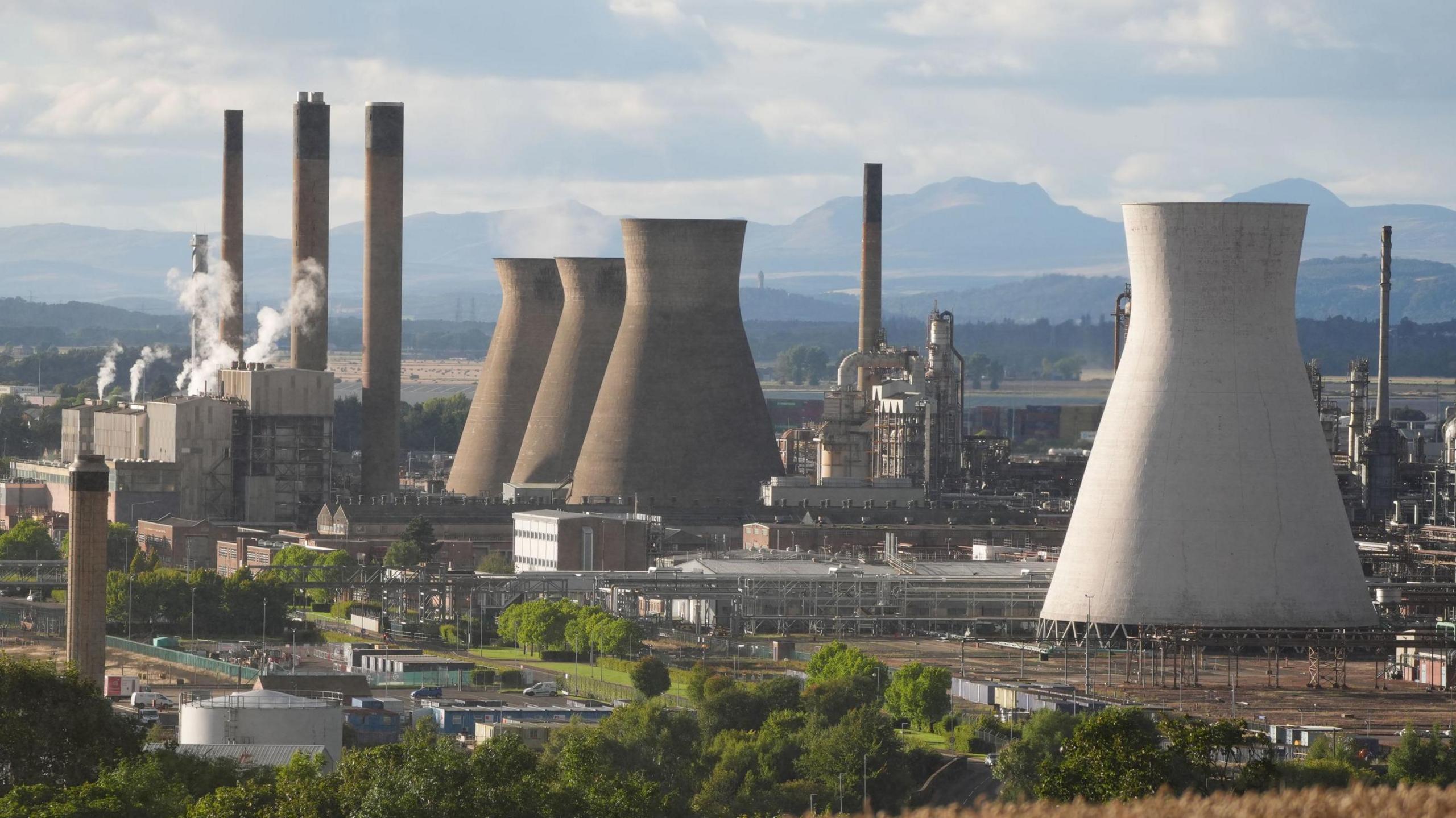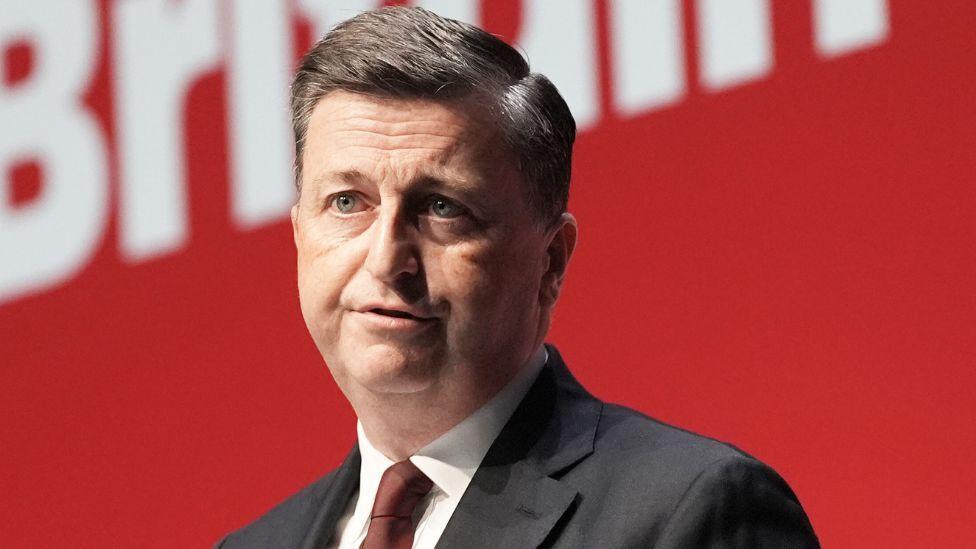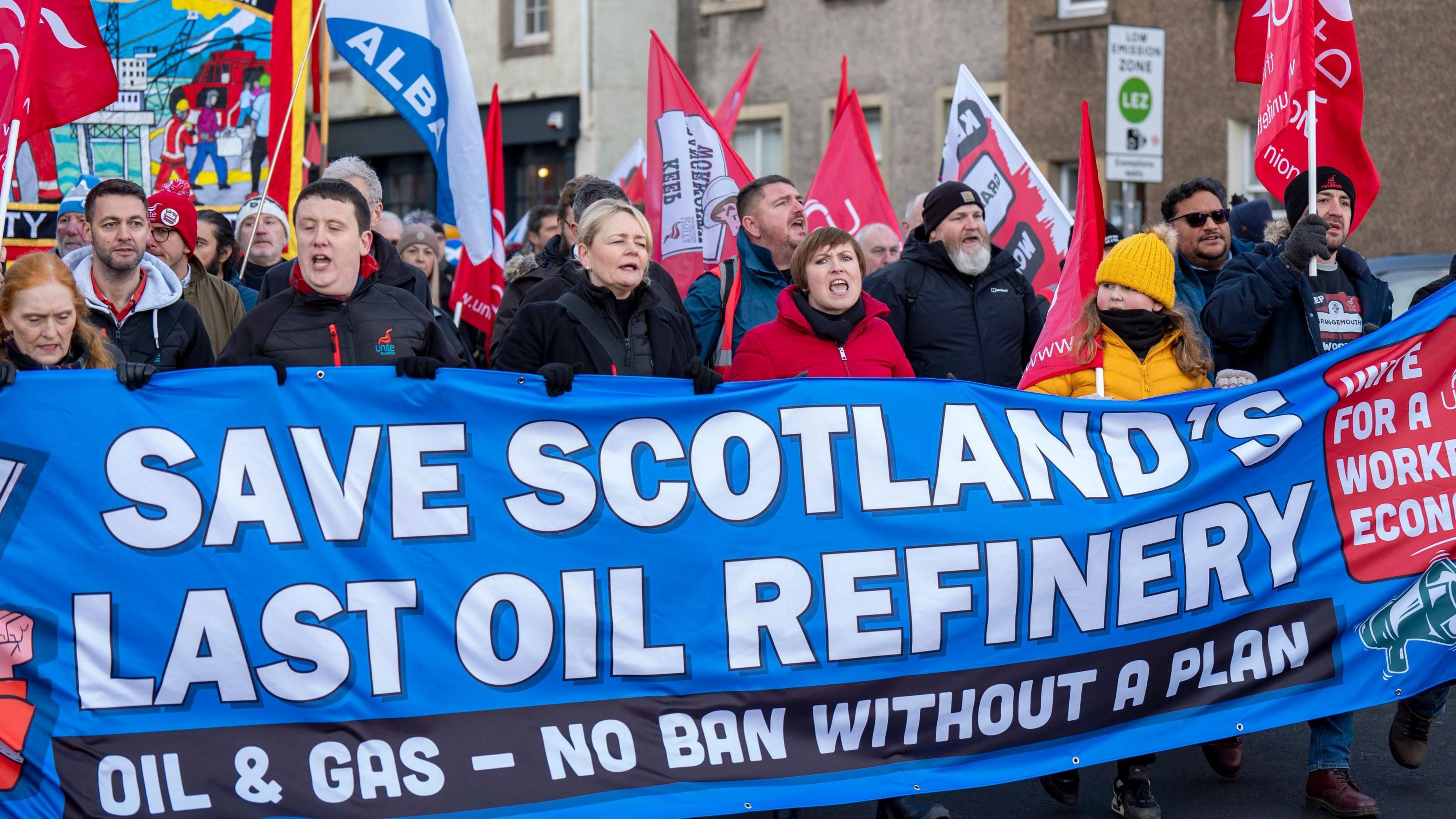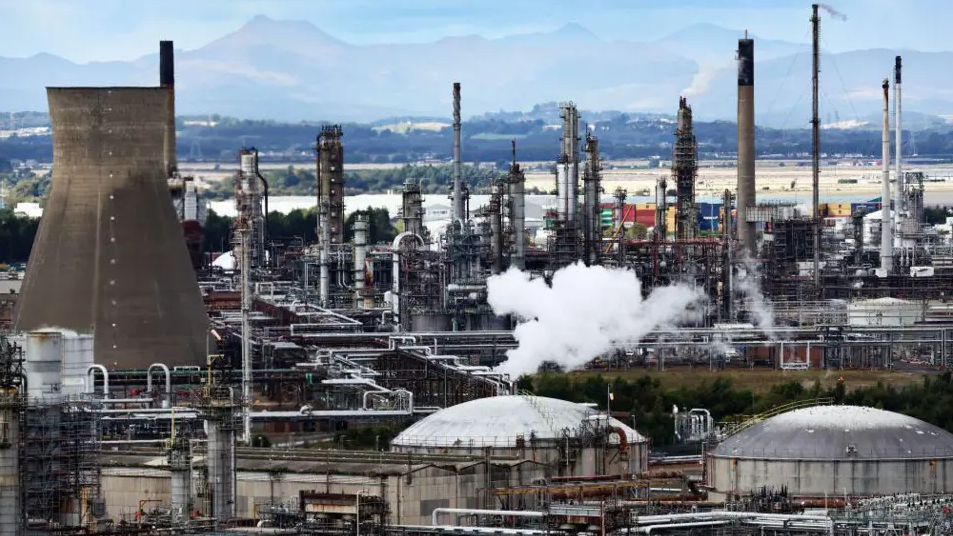UK government to announce Grangemouth funding in Budget

Grangemouth refinery ceased production in April which has led to the loss of about 400 jobs
- Published
Chancellor Rachel Reeves is set to announce up to £14.5m in investment for Grangemouth in the Budget.
Scotland's only oil refinery stopped processing crude oil at Grangemouth in April, after a century of operations.
The UK government has been accused of failing to deliver £200m pledged to Grangemouth from the National Wealth Fund.
Scottish Secretary Douglas Alexander said that more details would be confirmed in the Budget announcement on Wednesday, but that the £14.5m would be "targeted towards jobs on the Grangemouth site".
He told BBC Radio Scotland Breakfast: "I've been working hard with the Treasury to make sure that, while we are working to find a commercial buyer for Grangemouth, we are also unlocking new funds that will be able to provide new jobs and new opportunities on the site."
BBC Scotland News understands that about £12.5m is new funding whereas around £2m will come from existing Department for Energy and Net Zero spending.
He said that to "unlock" the £200m fund, the UK government had to find a commercial partner willing to invest in Grangemouth and that ministers were "scouring the earth" to do so.

Labour cabinet secretary Douglas Alexander says the money will support new jobs
Petroineos announced the refinery at the central Scotland facility would close and transition to become an import terminal after reporting massive losses.
Redundancy letters were sent out to staff at the refinery at the beginning of this year, with just 65 of 500 jobs expected to be retained.
Approximately 2,000 people were directly employed at the site - 500 at the refinery, 450 on the Forties pipeline from the North Sea and a further 1,000 in the Ineos petrochemicals business.
A £1.5m report into the feasibility of Grangemouth becoming a low-carbon energy hub, known as Project Willow came up with nine ideas that could be developed with private sector investment.
This included alternative uses for the site such as hydrothermal plastics recycling and anaerobic digestion.
The prime minister pledged £200m to the site at the Scottish Labour conference telling delegates it was an "investment in Scotland's industrial future".
In August, Unite the union said the money hadn't been delivered and workers felt abandoned.
'Jobs of the future'
Chris Hamilton, who was a union representative for Unite during the redundancy process at Grangemouth, said that while any funding was welcome more detail was needed to make the latest announcement more than "glossy PR".
"What we need is less talking and more action," he told BBC Radio Scotland Breakfast.
"We need to create these jobs of the future."
Mr Hamilton said that workers and the community had "not seen a penny" of the £200m wealth fund announcement.
Last November, the Scottish and UK government also signed the Falkirk and Grangemouth growth deal which promised £100m for the area through measures like a skills transition centre to get locals into work.
The UK government said work on delivering the investment continues, and this newly announced money is on top of the funds already promised.
A Treasury source said: "These investments will help deliver a fair transition for Grangemouth, securing jobs for local people way into the future."
First Minister John Swinney also announced £25m of new funding in a statement to Holyrood in February.

After a lot of speculation and a double U-turn on income tax, we now have some hard and fast announcements ahead of this week's Westminster Budget.
So far, they are about spending more. For England, there are pledges on rail fares, more planners and school books. There will be more funds to root out benefits fraud and a real-terms rise in the state pension next spring.
As most local decisions for Scotland are made at Holyrood, there is a shorter list of giveaways for Scotland, but £14.5m for Grangemouth is something.
What does £14.5m buy you? They are not saying yet. We will have to wait until Wednesday.
Until then, some context. The UK government has already committed £200m to Grangemouth. And in a strange choice of words, it "continues working to unlock" that money it committed last year.
Scottish Secretary Douglas Alexander put that bigger sum in the context of looking for a buyer for the refinery site. The private land ownership there is complicated, but it sounds like neither Ineos nor its refining partnership with PetroChina are seen as the future.
There is another £100m for the fund to boost Forth Valley growth, with matching funds from the Scottish government. So Grangemouth is not short of funds. Nor is the area short of jobs. There are opportunities for those with industrial skills to work on Babcock defence contracts in Rosyth.
However, Grangemouth has become symbolic of the timing gap in that transition from fossil fuel to clean energy.
It is not alone. And if there is that much money available to be allocated to one site, it raises expectations that there will be similar sums available at Mossmorran gas processing plant in Fife, where we learned last week a similar number of jobs are likely to go.
Yet the big story of this week's budget is not expected to be about £14m here or there - welcome though it may be - but about tens of billions of pounds of spending cuts and tax increases, and where the axe and the bills are going to land.
Related topics
- Published23 August

- Published15 June

- Published29 April
